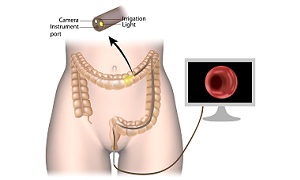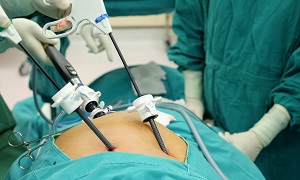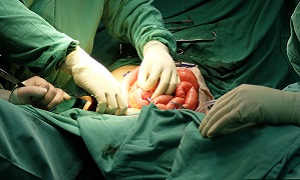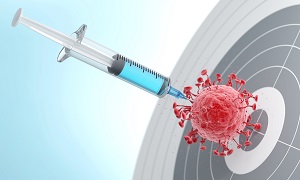Best Doctors in India for Colon Cancer treatment
Best Hospitals in India for Colon Cancer treatment
CK Birla Hospital, Gurugram
- City: Gurugram, India
Hospital Highlights:
- The CK Birla Hospital in Gurugram is a NABH-accredited multi-specialty hospital.
- The hospital strives to increase the quality of healthcare by focusing on UK NHS nurse and midwife training requirements. Policies and practices derived from the National Institute for Health and Treatment Excellence (NICE) recommendations in the United Kingdom ensuring that a strong focus on safety, high-quality clinical care, and sanitation is maintained.
- The hospital’s cutting-edge technology and facilities allow for real-time communication and seamless collaboration among caregivers, ensuring accuracy and the best possible results. Those with foreign experience and accreditations make up part of the hospital’s team of clinicians.
KIMS Hospital, Hyderabad
- City: Hyderabad, India
Hospital Highlights:
- KIMS Hospital (a brand name of Krishna Institute of Medical Sciences) is one of the largest and best multi-speciality hospitals in Hyderabad. The hospital provides various treatments to an enormous number of patients.
- The hospital has a capacity of more than 3000 beds. KIMS Hospitals offers different healthcare services in more than 25 specialities and super specialities.
- The hospital is equipped with modern medical equipment and technology. It has robotic equipment to provide minimal invasive techniques for patients.
- The hospital is aimed at providing world-class healthcare facilities and services at an affordable cost for patients.
- The various specialities and departments of the hospital include neurosciences, gastroenterology & hepatology, robotic science, reproductive sciences, dental science, oncological sciences, organ transplantation, heart and lung transplantation and mother and child care.
Fortis Hospital, Shalimar Bagh
- City: New Delhi, India
Hospital Highlights:
- Fortis Hospital in Shalimar Bagh is a multi-super specialty hospital that strives to provide world-class patient care by leaving no stone unturned.
- Fortis, Shalimar Bagh, with 262 beds and a 7.34-acre footprint, provides the best level of medical care through its team of doctors, nurses, technicians, and management professionals.
Reliance Hospital, Mumbai
- City: Mumbai, India
Hospital Highlights:
- Reliance Hospital is one of the best super-specialty care hospitals in Navi Mumbai.
- The main purpose of this hospital is to become a trustworthy place for the best health and hope for society. The hospital is well connected to the suburbs of Mumbai and Navi Mumbai.
- The hospital has various specialty departments, viz., Accident & Emergency, Anesthesiology, Dental Services, Dermatology, Diabetology, Dietetics Nutrition, Endocrinology, ENT, Gastroenterology, General Surgery, Gynaecology And Obstetrics, Hepato Pancreato Biliary Surgery, Infectious Disease, Internal Medicine, Interventional Radiology, Laboratory Medicine, Minimal Access Laparoscopic Surgery, Nephrology, Neurosciences, Opthalmology, Orthopaedics, Paediatrics, Pain Management Palliative Care, Physical Medicine Rehabilitation, Plastic And Reconstructive Surgery, Psychiatry, Pulmonary Medicine, Radiology, Rheumatology, Transplant, Urology Andrology, Vascular Surgery
Lilavati Hospital & Research Centre, Mumbai
- City: Mumbai, India
Hospital Highlights:
- Lilavati Hospital & Research Centre is India’s premier multi-speciality tertiary care hospital and has been recognised as a global medical excellence centre.
- Lilavati Hospital & Research Centre has built an unrivalled level of trust with its patients over the years, thanks to a solid foundation that comprises cutting-edge facilities, the best medical competence, research, education, and charity endeavours.
- The hospital is quite proud of the fact that it now serves patients from all kinds of backgrounds, not just from the United States but from all around the world.
- The hospital has a total of 323 beds, one of the largest Intensive Care Units (ICUs), 12 Operation Theatres with modern amenities, over 300 consultants, and almost 1,800 personnel.
COLON CANCER
Cancer is one of the diseases that involve abnormal growth of cells. This is an uncontrollable disease that can even affect other parts of the body. One such type of cancer is colon cancer, which affects the digestive tract. Cancer starts from the large intestine and reaches the colon, which is the last part of the digestive system. The disease generally affects the ones who are older in age, but the disease is not age bound and affects the person of any age.
Colon cancer, which is also known as colorectal cancer is the one that starts as a non-cancerous cluster of cells in the initial stage. These clusters form inside the colon and are known as polyps. As time passes, some of the polyps turn cancerous, which can lead to colon cancer. Colon cancer is a type of cancer that can be controlled. One can get treated by various methods like drug treatments, surgery, and radiation therapy.
Cause of Colon Cancer
For prevention one should be aware of the causes of the disease. Though doctors are not sure what are the main causes behind the spread of the colon cancer, the disease starts when the healthy cells in the colon change their DNA (mutation).
In general, the cells are healthy, they grow and divide, to keep the functioning of the body in order. But as the DNA of the cells gets damaged, it can become cancerous. This does not stop the division of cells, instead, they continue to grow and form a tumor. This cancerous cell, with time, grows and can affect other normal tissues. It can further affect the other parts of the body.
Symptoms of Colon Cancer
Some of the symptoms that can help you know if you are suffering from colon cancer are as follows:
- One of the symptoms of cancer is the change in bowel habits. The patient suffering from colon cancer may experience constipation or diarrhea. It can even lead to a change in the consistency of the stools of the patient.
- One can experience bleeding in stools or in the rectum.
- A patient suffering from colon cancer will undergo never-ending abdominal discomfort. These include cramps, gas, or pain.
- One can undergo an unexpected weight loss.
- Weakness and fatigue are the symptoms that can be an alarm for you to check yourself.
The person undergoing these symptoms should see the doctor as soon as possible as these can be the symptoms about the start of the colon cancer. Also, the symptoms may vary according to the size and location of cancer in the patient’s large intestine.
Diagnosis of Colon Cancer
Screening
For healthy people with no possible signs & symptoms, doctors recommend some screening tests to look for the non-cancerous colon polyps and signs of colon cancer. Figuring out the disease in its initial stage indicates higher chances of favorable treatment and a cure. Screening reduces your risk of dying because of colon cancer. Most of the people with a risk of colon cancer undergo screening around the age of 50 years. There are myriad screening options, each with their own drawbacks and benefits. When the doctor performs colonoscopy for screening, it is possible to remove the polyps before they turn into cancer.
Colonoscopy
Colonoscopy involves using a long, slender & flexible tube attached to a video camera and monitor. It helps the doctor to view the rectum and colon. Your doctor will pass surgical tools through the tube for collecting tissue samples, if he or she finds any suspicious areas. Next, the doctor will perform analysis and remove the polyps.
Blood tests
Treatment options for Colon Cancer
Surgery
Surgery for early-stage cancer
Your doctor will perform a minimally invasive approach to surgery, if your colon cancer is at its initial stages.
- Polypectomy– If your cancer is in its early stage, localized, contained with a polyp, and small, then your doctor will remove it completely in a procedure called colonoscopy.
- Endoscopic mucosal resection – Your doctor may remove the larger polyps during colonoscopy with the help of special tools. He or she may also remove the inner lining of the colon through endoscopic mucosal resection.
- Laparoscopic surgery –It is a minimally invasive surgery and removes polyps that colonoscopy doesn’t remove. Your surgeon will give numerous small incisions in the abdominal wall and insert the instruments with cameras to display the colon on your monitor during the procedure.
Surgery for advanced-stage cancer
- Partial colectomy– Your doctor will remove a part of your colon containing cancer along with a margin of the normal tissue during the procedure.
- Ostomy- This procedure involves creating an opening in the abdominal wall from a portion of the bowel. It held the elimination of stools in a bag that fits over the opening. The procedure is temporary sometimes to allow the colon or rectum to heal. However, it may be permanent in some cases.
- Lymph node removal- Your surgeon will remove the nearby lymph nodes during the surgery.
Surgery for very advanced cancer
Chemotherapy
Radiation therapy
Targeted drug therapy
Immunotherapy

Palliative care















